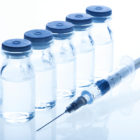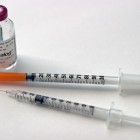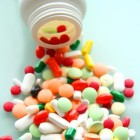Recent E. Coli Outbreak Underscores Flaws In Food-Recall Process, Critics Say
|
A fatal outbreak of E. coli contamination that recently hospitalized at least 26 people in the U.S. and Canada—including two in Connecticut—shows that the federal government is failing to adequately protect people from consuming recalled foods, lawmakers and consumer advocates say. The outbreak that sickened the two Connecticut residents and 16 others nationally, including 1 person in California who died, was probably caused by eating “leafy greens,” but a specific leafy green couldn’t be identified, the Centers for Disease Control and Prevention (CDC) reported. The Canadian government’s Public Health Agency announced on Dec. 11 that the outbreak was linked to romaine lettuce. Maura Downes, the communications director for the Connecticut Department of Public Health, confirmed that two state residents were sickened by the E. coli outbreak.





